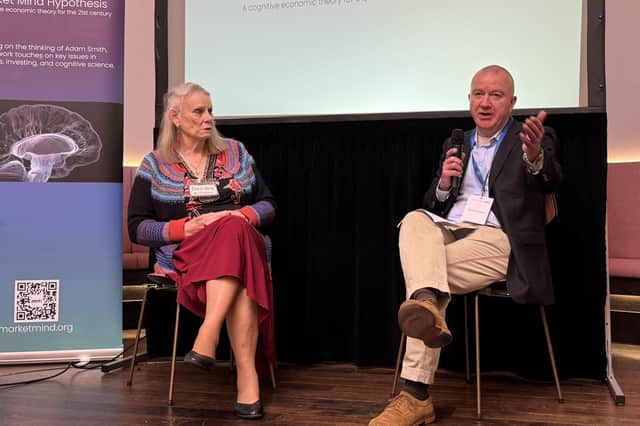Focus on the human being not the abstract, leading economist tells Edinburgh symposium


Economics is more about human beings and not the study of abstract ideas, a top economist has told an event in Edinburgh this week.
Speaking at a symposium in the capital, Deirdre McCloskey said the study of economics had become too abstract and mathematical and did not connect with the lived experience of being in the economy. McCloskey told an invited group of guests at the University of Edinburgh Business School that there needs to be a greater emphasis on understanding the real stories of how people act in the economy together with an understanding of the moral drivers within society.
Advertisement
Hide AdAdvertisement
Hide AdMcCloskey is a distinguished professor emerita of economics and of history, and professor emerita of English and of communication, at the University of Illinois at Chicago. She trained at Harvard in the 1960s as an economist.
To underline her point, McCloskey noted how economists at Chicago had tried to frame human behaviour within the context of experiments undertaken on rats and pigeons by psychologists at the University of Texas.
Her remarks formed part of a multi-day series of events to celebrate the work of Adam Smith and also launch the research programme of the “Market Mind Hypothesis”, a multidisciplinary project led by Edinburgh academic Patrick Schotanus and supported by the Library of Mistakes.
Schotanus said “Edinburgh is extremely blessed to have an economist of the stature of Prof McCloskey speak in our city. She is a true believer in efforts to understand Smith’s economics work in the broader context of his philosophical and moral beliefs.”
Comments
Want to join the conversation? Please or to comment on this article.